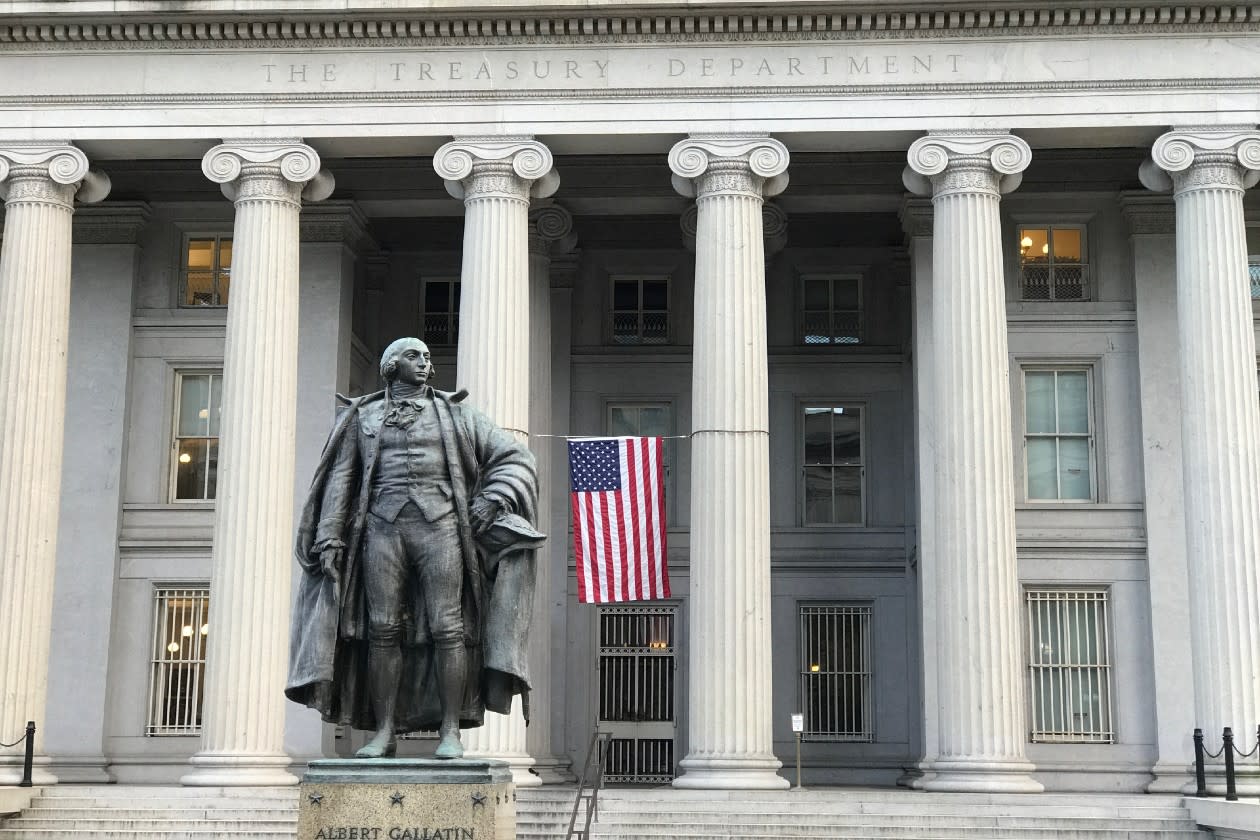The ripple effect of global uncertainty is reaching places you might not expect – the UK savings landscape.
Longer fixed rates rely heavily on UK Government Issued Bond (gilt) yields for pricing. The higher gilt yields go, the higher the rates banks use to exchange fixed and variable interest between each other go.
In turn, this lets banks offer higher fixed-term rates to savers.
Recently we've seen longer-dated fixed-terms hold up, because long term gilt yields have been rising.
Here’s why, and what you could do about it.
This article is not personal advice. If you’re not sure an action is right for you, ask for advice.
Trump’s economic policies matter
A key campaign promise from President Trump was to expand on tax cuts that he introduced in his first term. He’s taken the first step by getting his multi trillion-dollar tax break package through the House, albeit on a narrow margin.
The bill now moves to the Senate for approval, where the Republicans have a slim majority.
The bill aims to cut taxes significantly but also spend more on defence and immigration enforcement. With significant tax cuts, and an increase in spending, US government debt is set to rise by $5.2tn as a result. This has spooked bond investors, as a ballooning debt pile raises questions about the ability to pay it back.
Influential ratings firm Moody’s recently downgraded the country’s credit rating, joining S&P and Fitch, who had already decreased their ratings in the years prior – further increasing concern over the US government’s ability to pay back its debt.
As a result, bond yields in the US are rising—and that upward pressure is being felt in the UK too.
Higher gilt yields lead to higher ‘swap’ prices. These swap prices are what dictate mortgage pricing and what banks will lend out. The returns they receive on these, tie into the level of interest they’ll pay out in savings products.
Among the economic headwinds, predictions for two more interest rate cuts from the Bank of England this year have increased. Time could be running out for higher savings rates as a result.
What savers can do
Uncertainty remains the only constant in today’s markets, so it’s wise not to rely too heavily on forecasts.
A practical strategy is to split your savings across different fixed-rate terms. Fixed rates don’t allow you to take money out until the term ends however.
We all need to keep an emergency savings pot that’s easy to access in case anything unexpected happens. But anything you don’t need for six months, a year, two years or even up to five years, can all be fixed in separate pots.
This means you’ll be getting a fixed rate of interest (that’s often higher than easy access) for the whole period, and you’ll get the money back at the end of your term.
Instead of juggling accounts with a load of different banks, Active Savings offers a simpler way to manage your money. You can access a range of savings products from different banks, all through one convenient account.
And if you can afford to lock some money away, the potential returns are far better than a few years ago. £10,000 in an Active Savings five-year fixed rate could earn up to £2,301 by the time the deal matures. This is well over double the interest earned from the five-year fixed rate in May 2020, at just £1,040. Just remember, if your chosen savings rate is lower than the rate of inflation, the spending power of your money will reduce over time.
This website is issued by Hargreaves Lansdown Asset Management Limited (company number 1896481), which is authorised and regulated by the Financial Conduct Authority with firm reference 115248.
The Active Savings service is provided by Hargreaves Lansdown Savings Limited (company number 8355960). Hargreaves Lansdown Savings Limited is authorised and regulated by the Financial Conduct Authority (firm reference number 915119). Hargreaves Lansdown Savings Limited is authorised by the Financial Conduct Authority under the Electronic Money Regulations 2011 with firm reference 901007 for the issuing of electronic money. Hargreaves Lansdown Asset Management Limited and Hargreaves Lansdown Savings Limited are subsidiaries of Hargreaves Lansdown Ltd. (company number 2122142).




